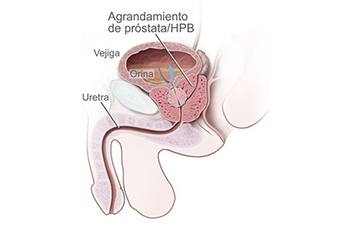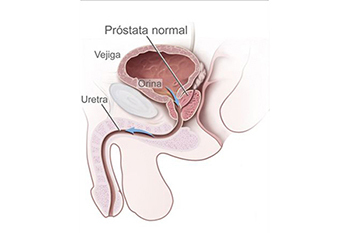Prostate Screening
Other specialties
The prostate is a small, walnut-shaped gland in men that produces the seminal fluid that ourishes and transports sperm. Prostate cancer is one of the most common types of cancer in men. In general, prostate cancer grows slowly and is initially confined to the prostate gland, where it may not cause serious damage. However, while some types of prostate cancer grow slowly and may need minimal or even no treatment, other types are aggressive and can spread quickly.
If prostate cancer is detected early, when it is still confined to the prostate gland it has a better chance of successful treatment. In 2018 there were an estimated 31,728 new cases of prostate cancer diagnosed in Spain, with 139 cases per 100,000 men. Through a simple examination and a blood test we can rule out the risk of prostate cancer. It is recommended from the age of 50, or 45 if there is a family history.
Prostate cancer may not cause any signs or symptoms in its early stages. Prostate cancer that is more advanced may cause signs and symptoms, such as:
Problems urinating.
Decreased strength of urine flow.
Blood in the semen.
Discomfort in the pelvic area.
Bone pain.
erectile dysfunction
when consulting a physician
The debate about the risks and benefits of testing for prostate cancer continues, and recommendations from medical organizations differ. Together you can decide what is best for you.
Make an appointment with your doctor if you have any signs or symptoms that concern you.






